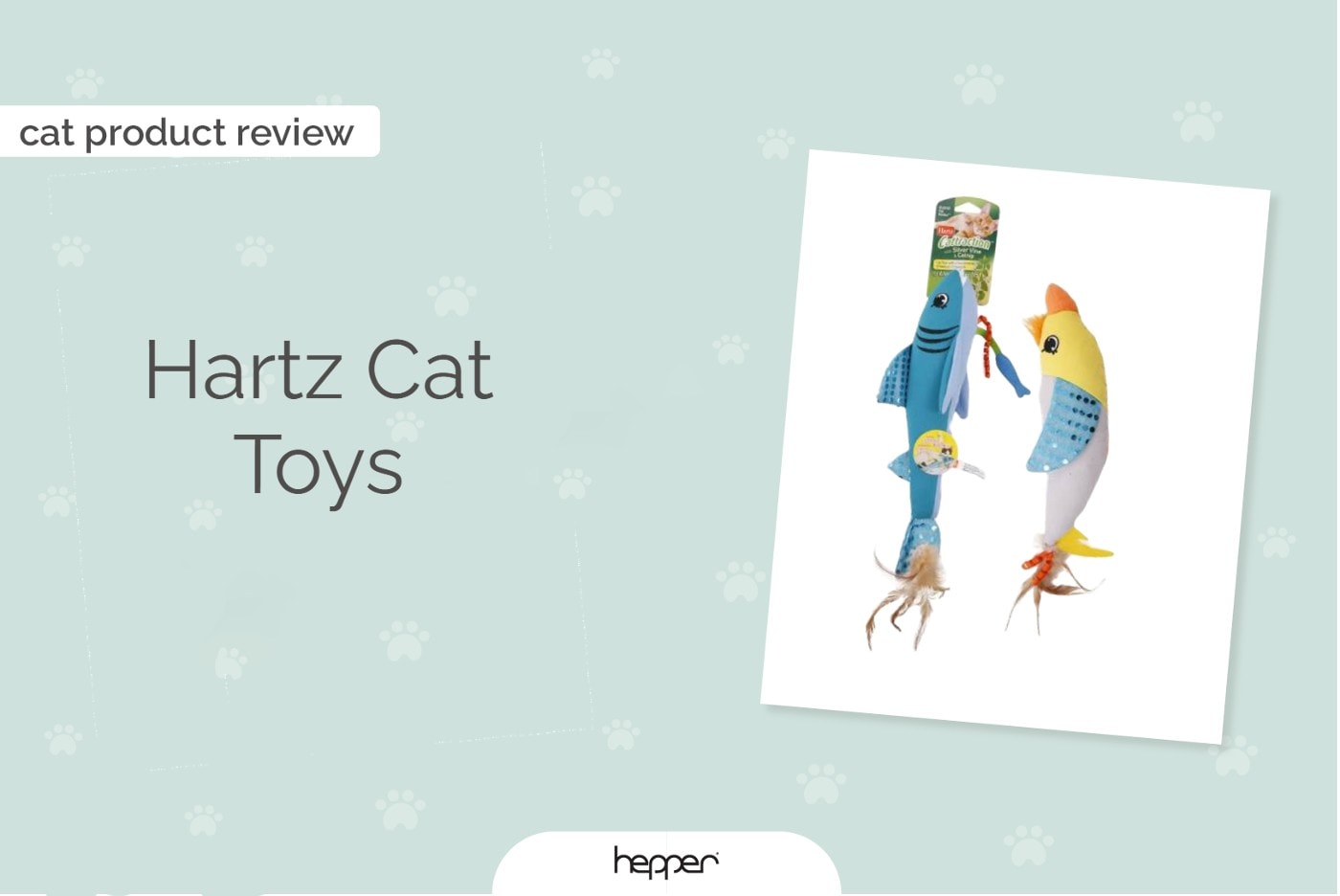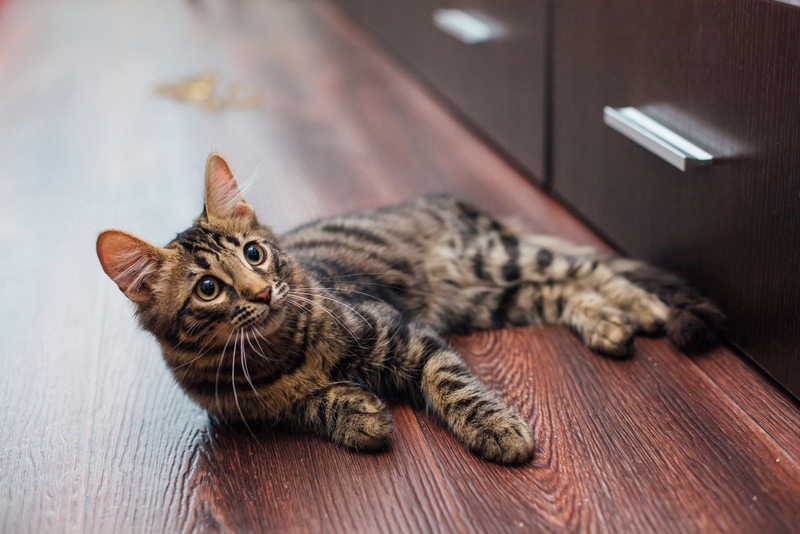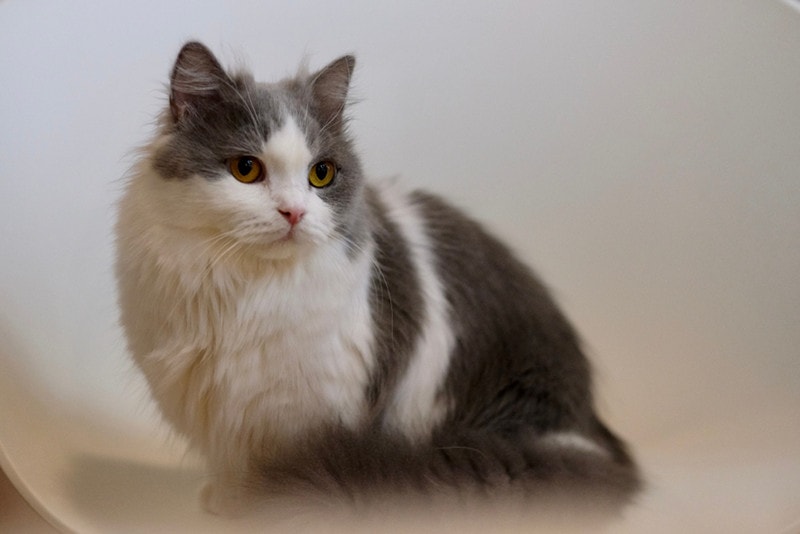Can Cats Eat Turkey Bacon? Vet-Verified Facts & FAQ
Updated on
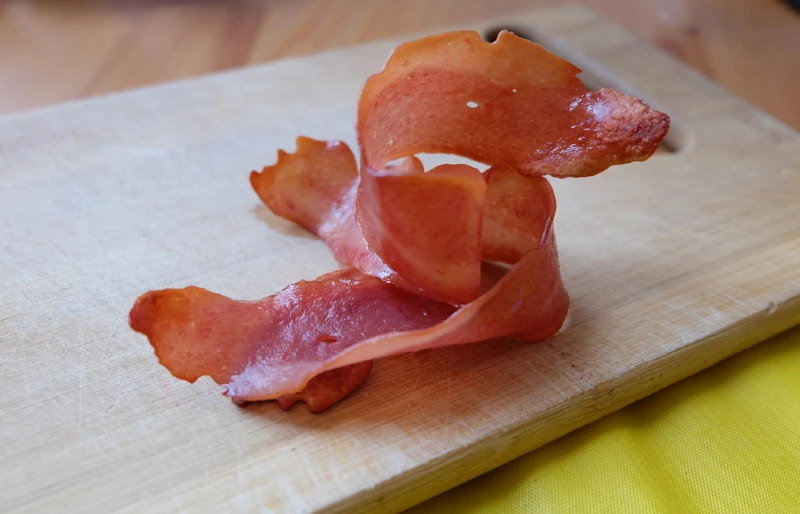
Click to Skip Ahead
Owning a cat means looking after all their needs and giving them occasional treats. Watching your cat scarf down a tasty tidbit can be one of the many joys of looking after your beautiful pet. But is it okay to give your cat a bit of your turkey bacon?
If your cat snatches a piece of turkey bacon, they will likely be okay because it isn’t toxic. But giving turkey bacon to your cat as a regular treat isn’t recommended.
If you’re wondering why, read on. We get into the reasons and suggest the best ways to give turkey to your cat.
Can You Give Turkey Bacon to Your Cat?
Obligate Carnivores
Cooked and unseasoned turkey is healthy for cats. Cats are obligate carnivores, which means they need to eat meat to get the nutrition that they need in order to survive. In fact, a cat’s diet must be 80% animal meat.
Many commercial diets formulated for cats include turkey, because it is a great protein source, tends to be leaner than other meats, and is tasty to cats. This makes it an excellent meat to give your cat and long as it is minimally processed. This means cooking only, no extra additives, seasonings, smoking, etc.
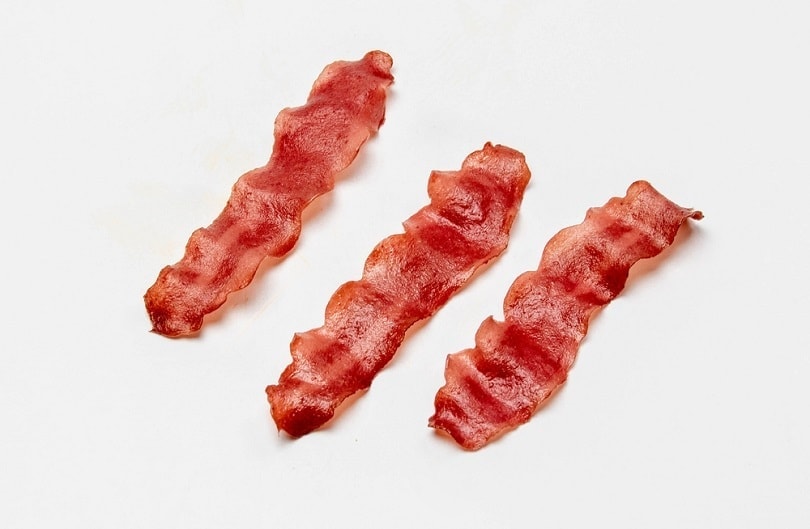
How Turkey Bacon Is Made
Turkey bacon goes through a process that includes grinding turkey meat and adding chemicals, preservatives, and seasonings. It’s then pressed into bacon strip shapes. Manufacturers frequently use light and dark meat to make them look like regular pork bacon strips.
While turkey bacon is slightly healthier than pork bacon, having less calories and fat, it’s still not a healthy choice for cats.
Why Is Turkey Bacon Unhealthy for Cats?
Technically, cats can eat turkey bacon, but it’s full of ingredients that aren’t great for your cat. It tends to contain added sugar, preservatives (most notably, nitrites), and nitrates, which enhance the appearance and taste of the bacon and help slow spoilage. Turkey bacon is also quite salty and fatty and is just not recommended for cats.
Salt
A small amount of salt is fine, but if your cat eats something with too much salt, like bacon, salt poisoning is quite possible.
- Diarrhea
- Vomiting
- Lethargy
- Decreased appetite
- Excessive thirst
- Excessive urination
- Incoordination
- Tremors
- Seizures
- Coma
If you suspect that your cat is suffering from salt poisoning, contact your veterinarian immediately!
Preservatives
Whether it is pork or turkey, bacon tends to be made with preservatives, which can lead to health problems. Some bacon manufacturers can make bacon without chemicals or preservatives, but this doesn’t negate its other unhealthy aspects.
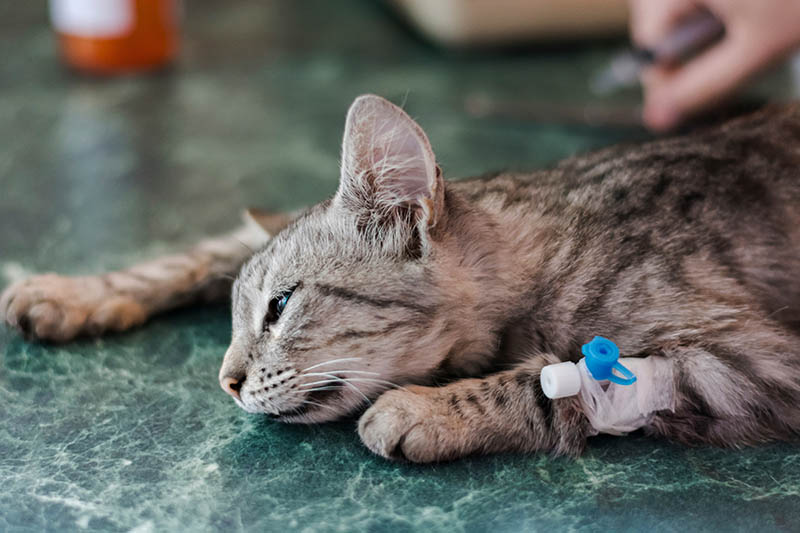
Fat
While turkey bacon is lower in fat compared to traditional pork bacon, it is still fattier than what should be fed to your cat.
A cat that is consistently fed fatty foods can suffer from obesity, which can lead to other health conditions, such as diabetes and pancreatitis.
What’s the Best Way to Give Turkey to Your Cat?
Turkey is suitable for cats, but the best type is manufactured specifically for cats—not so much the turkey that is for human consumption. Turkey has excellent nutritional benefits because it’s low in calories and fat but rich in zinc, selenium, vitamin B, magnesium, phosphorus, and potassium.
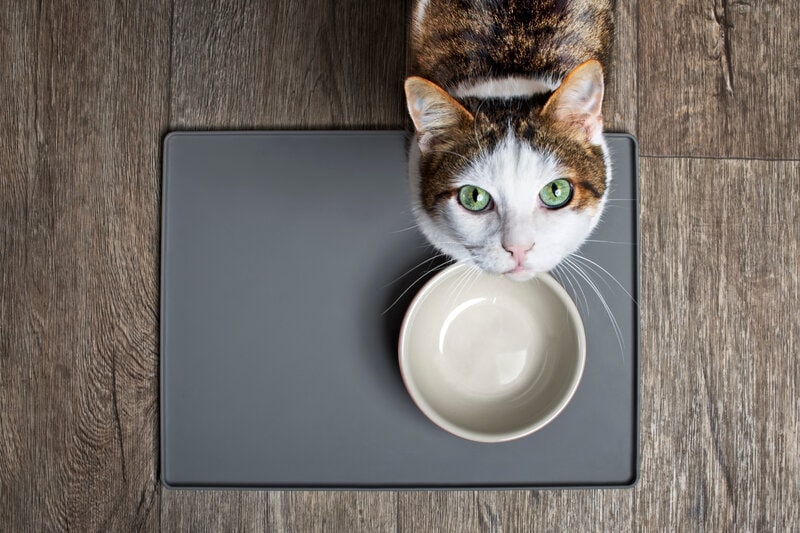
No Seasonings
If you plan to give your cat a piece of your own turkey, ensure that it doesn’t have any seasonings on it. Many of the seasonings used for turkeys, particularly during holiday meals, are bad for cats.
Turkey skin can have a fair amount of fat, along with salt and pepper, and other herbs that are not suitable for pets. Garlic and onions are also often used and are toxic to cats.
Frequent Asked Questions
Can Cats Eat Raw Bacon?
While some believe that a raw diet is perfectly safe for cats, there are definite risks for both your cat and yourself. For one thing, there’s an increased risk of serious pathogens like Salmonella, E. coli, and Listeria. Even if you make your cat’s food yourself, there’s still a risk of these pathogens, along with Campylobacter bacteria and parasites that can spread such as Toxoplasma gondii.
Domestic cats have evolved from their wild ancestors a fair bit and will have more difficulty chewing and digesting raw food.
Can Cats Eat Other Processed Meat?
Foods like salami, sausages, and pepperoni have far too many seasonings that are toxic to cats, and they are also fatty and full of preservatives and should be avoided.
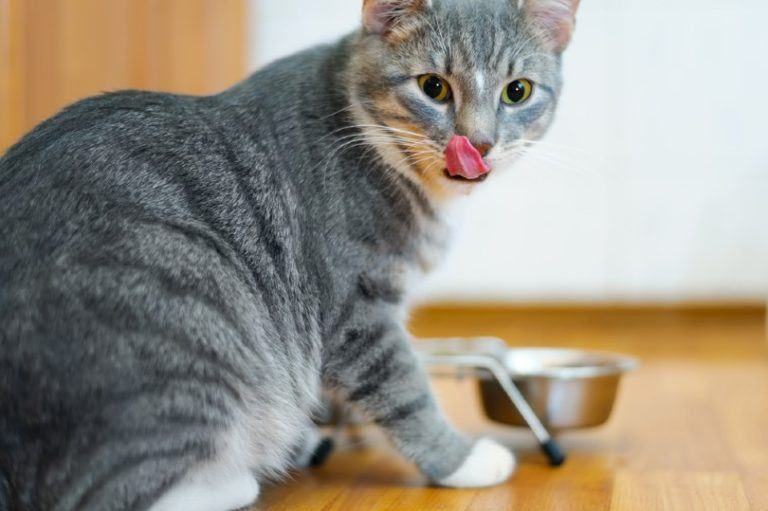
What Do You Do If Your Cat Ate Turkey Bacon?
First, don’t panic. If your cat snatched a piece of turkey bacon off your plate and ate it before you had a chance to retrieve it, no harm is done. Your cat might simply experience digestive issues, such as diarrhea and vomiting, especially if your cat has a sensitive stomach or food allergies.
However, if your cat ate a large amount of turkey bacon at once, you should take them to your veterinarian to ensure that they are safe. Too much salt and fat at one time might wreak havoc on their bodies.
Conclusion
If your cat sneaks a bite of turkey bacon, they should be fine. But don’t give it to them as a treat on a regular basis. There are plenty of other cat-friendly treats that are safer options.
Bacon is full of fats, salt, and other chemicals and preservatives that will not do your cat any favors. So, find something safer and speak to your vet whenever you plan to change or add anything new to your cat’s diet.




